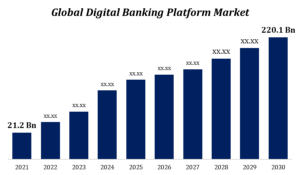The Rise of Robo-Advisors: How Automated Investment Platforms Are Changing Finance
The financial industry is undergoing a transformative shift with the rise of robo-advisors, automated investment platforms that leverage technology to provide personalized and cost-effective investment solutions. Robo-advisors have democratized access to professional investment management, enabling both novice and experienced investors to optimize their portfolios with ease. In this article, we will explore the rapid growth of robo-advisors, their impact on the financial landscape, and the benefits they offer to investors.
The Evolution of Investment Management:
- Traditional vs. Robo-Advisory: Traditional investment management often involves high fees and human advisors. Robo-advisors offer automated, algorithm-driven solutions at a fraction of the cost.
- Accessibility and Inclusivity: Robo-advisors have opened doors for retail investors with lower investment amounts, making professional investment management accessible to a broader demographic.
The Robo-Advisor Advantage:
- Customized Portfolios: Robo-advisors create portfolios based on investors’ risk tolerance, financial goals, and time horizon, optimizing asset allocation for individual needs.
- Data-Driven Insights: These platforms leverage advanced data analytics to provide real-time insights and market trends, assisting investors in making informed decisions.
- Diversification and Rebalancing: Robo-advisors maintain diversified portfolios and automatically rebalance them to ensure alignment with investment objectives.
- Cost Efficiency: With lower management fees compared to traditional advisory services, robo-advisors provide a cost-effective investment solution.
- Transparency and Accessibility: Investors can monitor their portfolios and make adjustments at any time through user-friendly digital interfaces.
Driving Factors Behind Robo-Advisor Growth:
- Technology and Automation: Advances in AI, machine learning, and automation have enabled robo-advisors to offer sophisticated investment strategies.
- Changing Investor Preferences: Millennials and tech-savvy investors prefer digital platforms that offer convenience, transparency, and tailored solutions.
- Evolving Regulatory Environment: Regulatory changes have paved the way for fintech innovation, allowing robo-advisors to operate within established frameworks.
Challenges and Considerations:
- Personalization vs. Human Touch: While robo-advisors offer personalized solutions, some investors may still value the human element of traditional financial advisory.
- Market Volatility: During periods of market volatility, the effectiveness of automated algorithms may face challenges.
- Education and Investor Behavior: Investors should understand how robo-advisors work and be mindful of behavioral biases that could impact investment decisions.
Robo-advisors have revolutionized investment management, making it accessible, cost-effective, and user-friendly. By harnessing technology and data-driven insights, these platforms cater to a diverse range of investors, from those seeking simple solutions to those with more complex financial goals. While robo-advisors are not a replacement for traditional advisory services, they have established themselves as a valuable tool in the financial industry. As technology continues to evolve, robo-advisors are likely to play an increasingly important role in shaping the future of finance and empowering individuals to achieve their investment objectives.


































